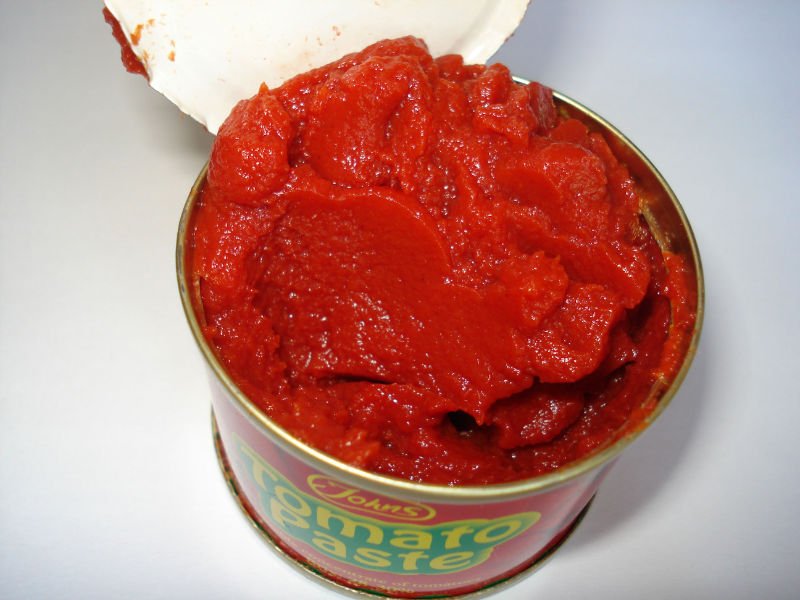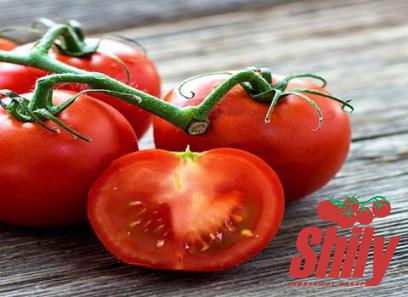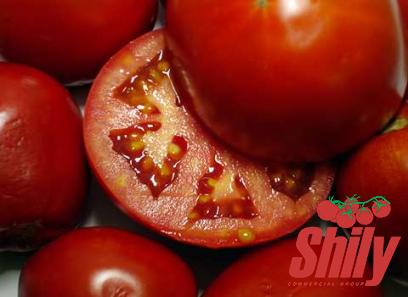Canned diced tomatoes are a versatile and convenient ingredient that can be used in a wide variety of dishes. Diced tomatoes are essentially whole tomatoes that have been chopped into small, uniform pieces and preserved in a can. This process allows tomatoes to be enjoyed year-round, regardless of whether they are in season or not.
There are several different types of canned diced tomatoes available in the market, each with their own unique characteristics and uses. These can vary in terms of the type of tomato used, the processing methods employed, and any additional ingredients or seasonings that may be added. In this summary, we will explore some of the most popular types of canned diced tomatoes.
1. Regular Diced Tomatoes: This is the most basic and widely available type of canned diced tomatoes. They are made from ripe, red tomatoes that have been peeled, deseeded, and diced before being canned. Regular diced tomatoes have a balanced and natural tomato flavor that can be used in a variety of recipes.
2. Fire-Roasted Diced Tomatoes: Fire-roasted diced tomatoes are made from tomatoes that have been charred over an open flame before being diced and canned. This process imparts a smoky flavor to the tomatoes, giving them a rich and intense taste. Fire-roasted diced tomatoes are particularly popular in Mexican and Southwestern cuisines, as they add depth and complexity to dishes like salsas, chili, and enchiladas.
3. Italian Style Diced Tomatoes: Italian style diced tomatoes are often made from a specific variety of tomatoes, such as Roma or San Marzano. These tomatoes are known for their rich, sweet flavor and low acidity, making them ideal for Italian-inspired dishes like pasta sauces, stews, and soups. Italian style diced tomatoes are often combined with herbs, such as basil, oregano, and garlic, to enhance their flavor profile.
4. Organic Diced Tomatoes: Organic diced tomatoes are made from tomatoes that have been grown without the use of synthetic pesticides, herbicides, or fertilizers. These tomatoes are considered to be more environmentally friendly and healthier as they are free from chemical residues. Organic diced tomatoes are often sought after by health-conscious consumers who prioritize organic and natural food products.
5. No Salt Added Diced Tomatoes: As the name suggests, no salt added diced tomatoes are produced without the addition of salt during the canning process. They are a good option for individuals who are on a low-sodium diet or those who prefer to control the amount of salt in their dishes. No salt added diced tomatoes can be used as a substitute for regular diced tomatoes in any recipe, allowing cooks to adjust the salt levels according to their preference.

6. Seasoned Diced Tomatoes: Some canned diced tomatoes come pre-seasoned with a blend of herbs, spices, and other flavorings to add a ready-made depth of flavor to dishes. Seasoned diced tomatoes are suitable for those who want to save time and simplify their cooking process. They are commonly used in recipes where a specific flavor profile is desired, such as Mexican, Cajun, or Mediterranean dishes.
When selecting canned diced tomatoes, it is important to consider the quality of the product. Look for cans that are free from dents, bulges, or other signs of damage, as these can indicate a lack of product integrity. Additionally, check the expiration date to ensure the tomatoes are still fresh and safe to consume.
In conclusion, canned diced tomatoes are a pantry staple that can enhance the flavors of various dishes. From regular diced tomatoes to fire-roasted, Italian style, organic, no salt added, and seasoned varieties, there is a wide range of options available to suit different culinary preferences and dietary needs. Whatever type of canned diced tomatoes you choose, they offer a convenient and versatile way to enjoy the delicious taste of tomatoes year-round.Types of Canned Diced Tomatoes: Exploring the Options for Business
Introduction:
Canned diced tomatoes are not only a kitchen staple but a thriving business in the food industry. With their versatility and convenience, these tomato products have a wide range of applications in both professional and home kitchens. In this article, we will delve further into the different types of canned diced tomatoes, highlighting the business aspects surrounding their production, marketing, and sales.
1. Regular Diced Tomatoes: The Classic Choice
Regular diced tomatoes are the foundation of the canned diced tomato market. These tomatoes are typically made from high-quality, ripe tomatoes that are peeled, deseeded, and chopped before being canned. Businesses in this segment focus on sourcing the best tomatoes to ensure a consistently excellent product. They then invest in high-quality equipment and processes to guarantee uniformity and safety. Regular diced tomatoes are often sold in bulk to restaurants, food processors, and other businesses in the food industry.
2. Fire-Roasted Diced Tomatoes: Capturing the Flavors of Fire
Fire-roasted diced tomatoes have gained popularity for their unique smoky flavor. To produce these tomatoes, the charring process involves roasting the tomatoes over an open flame before dicing and canning them. Businesses in this segment need specialized equipment and expertise to control the charring process and maintain consistency in flavor. They often target niche markets, such as restaurants specializing in Mexican or Southwestern cuisine, and also cater to the increasing demand for culinary variety in the retail sector.

3. Italian Style Diced Tomatoes: Embracing the Mediterranean Influence
Italian style diced tomatoes are crafted to replicate the rich and sweet flavor of San Marzano or Roma tomatoes. These tomatoes are cherished for their low acidity, making them perfect for creating authentic Italian dishes. Businesses in this segment focus on sourcing specific tomato varieties and ensure a careful balance of acidity and sweetness through diligent quality control. These tomatoes are highly sought after by restaurants, pizzerias, and home cooks who value the distinctive taste and quality associated with Mediterranean cuisine.
4. Organic Diced Tomatoes: Meeting the Demand for Health and Sustainability
The organic food industry has experienced significant growth in recent years, and canned diced tomatoes are no exception. Organic diced tomatoes are produced from tomatoes grown without the use of synthetic pesticides, herbicides, or fertilizers. Businesses in the organic segment prioritize sustainable farming practices, rigorous certifications, and consumer education regarding the health and environmental benefits of organic products. They cater to health-conscious consumers, specialty food stores, and organic-focused retailers.
5. No Salt Added Diced Tomatoes: A Healthy Choice for Sodium-Conscious Consumers
Reducing sodium intake has become a growing concern for many individuals. No salt added diced tomatoes are ideal for those on low-sodium diets or looking to control their sodium intake. Businesses in this segment focus on producing canned diced tomatoes without the addition of salt while ensuring all the other quality aspects remain intact. They target health-conscious consumers, individuals with dietary restrictions, and hospitals or healthcare institutions that prioritize heart-healthy options.
6. Seasoned Diced Tomatoes: Ready-Made Flavor Solutions
The demand for convenience and variety has given rise to seasoned diced tomatoes. These products come pre-seasoned with a blend of herbs, spices, and other flavorings, offering a time-saving solution for cooks. Businesses in this segment invest in recipe development and fine-tuning the perfect spice blend to suit various cuisines such as Mexican, Cajun, or Mediterranean. Their target markets include home cooks, busy professionals, and food outlets seeking to elevate their dishes without the need for additional seasonings.
7. Private Label Diced Tomatoes: Nurturing Relationships with Retailers

Private label diced tomatoes provide a unique business opportunity for manufacturers. By partnering with retailers, these businesses offer customized products under the retailer’s brand name. Private label manufacturers focus on building strong relationships with retailers, emphasizing quality control, cost efficiency, and brand integrity. They often provide retailers with distinctive packaging, competitive pricing, and tailored marketing strategies to attract customers and gain market share.
8. Organic/Private Label Hybrid: Combining Sustainability and Customization
Recognizing the demand for both organic and private label products, some businesses offer an organic/private label hybrid approach. By combining the benefits of organic production with the advantages of private labeling, these companies cater to environmentally conscious retailers and consumers seeking customized products. They prioritize organic production standards, while also tailoring their marketing strategies to align with the retailer’s brand image and target audience.
9. Diversifying Product Line with Tomato Blends: Expanding the Market Reach
In an effort to expand their market reach and cater to varying consumer preferences, some businesses produce diced tomato blends. These blends may include a mix of regular diced tomatoes, fire-roasted tomatoes, or tomatoes with added seasonings. By offering a versatile product line, businesses can target a broader customer base, including both professional chefs and home cooks who are looking for a range of flavor profiles and culinary options.
10. New Product Development: Tapping into Consumer Trends
To stay competitive, businesses in the canned diced tomatoes industry need to continuously innovate and adapt to changing consumer preferences. This includes developing new products, such as organic fire-roasted tomatoes, low-sodium seasoned options, or unique blends with unconventional flavors. By staying attuned to market trends and conducting thorough market research, businesses can identify gaps in the market and create products that meet the ever-evolving demands of consumers.
Conclusion:
The world of canned diced tomatoes offers a diverse range of options to cater to the preferences and needs of consumers. From the classic regular diced tomatoes to specialty varieties like fire-roasted, Italian style, organic, no salt added, seasoned, and tomato blends, businesses in this industry must continuously invest in quality control, innovation, and strategic marketing to succeed. By understanding the nuances and opportunities within each segment, businesses can carve out a profitable niche for themselves in the competitive canned diced tomatoes market.









